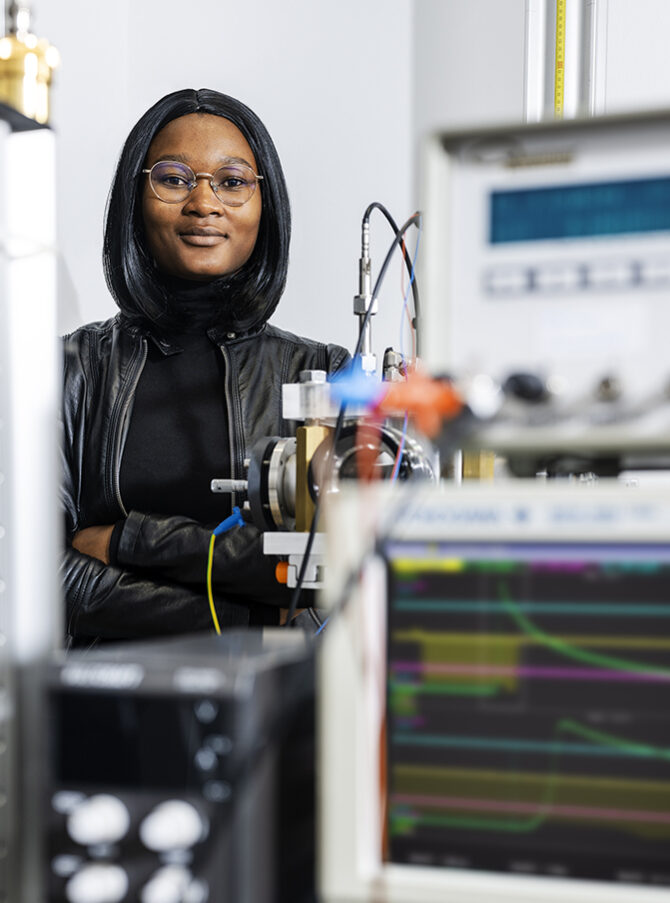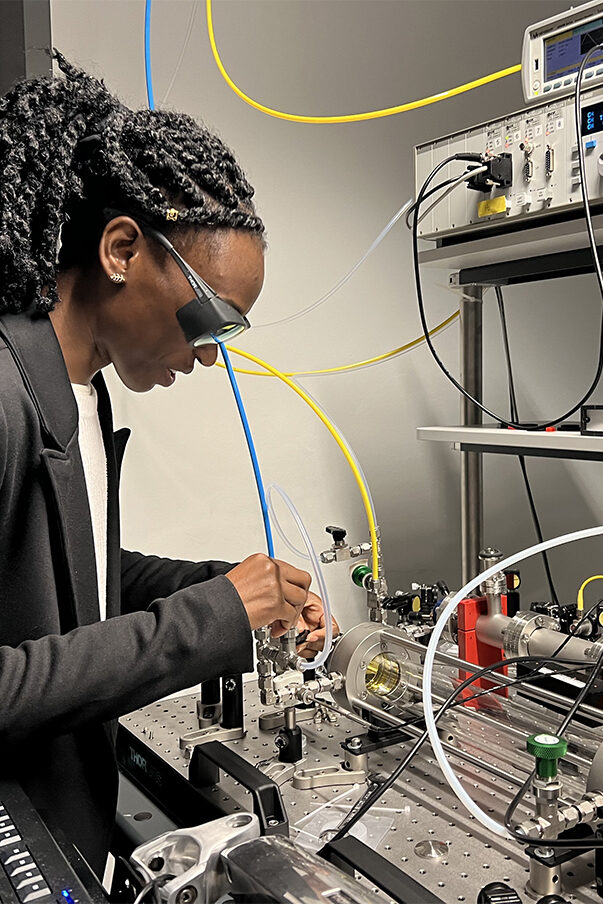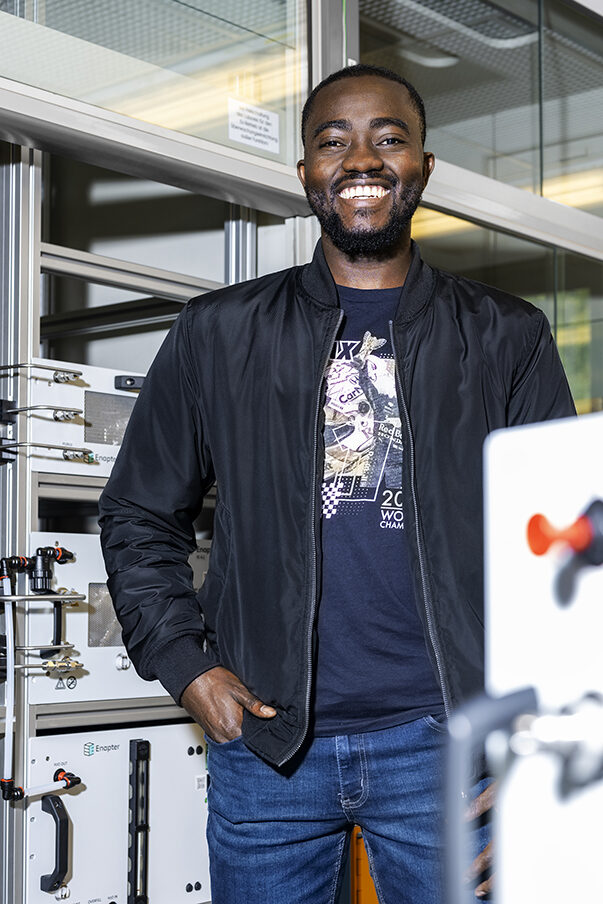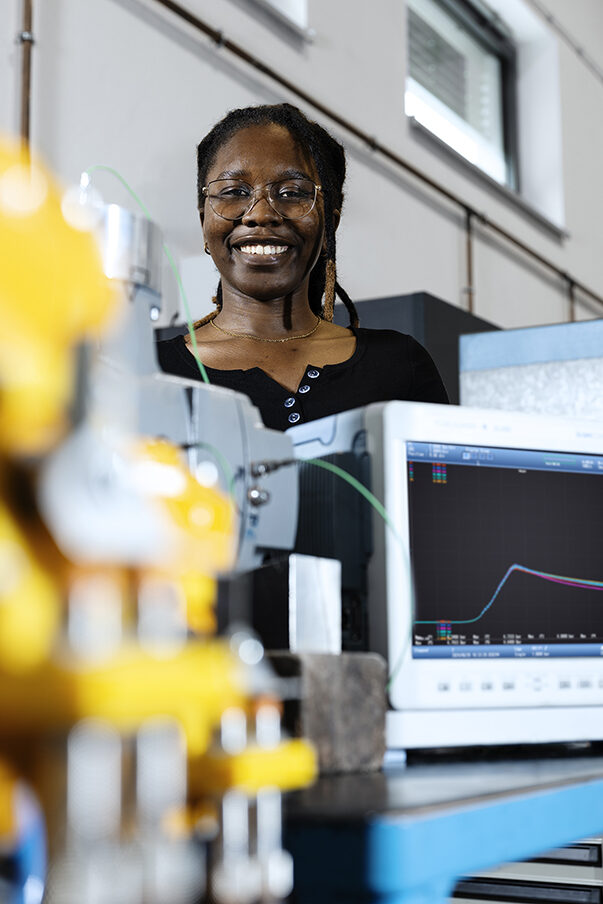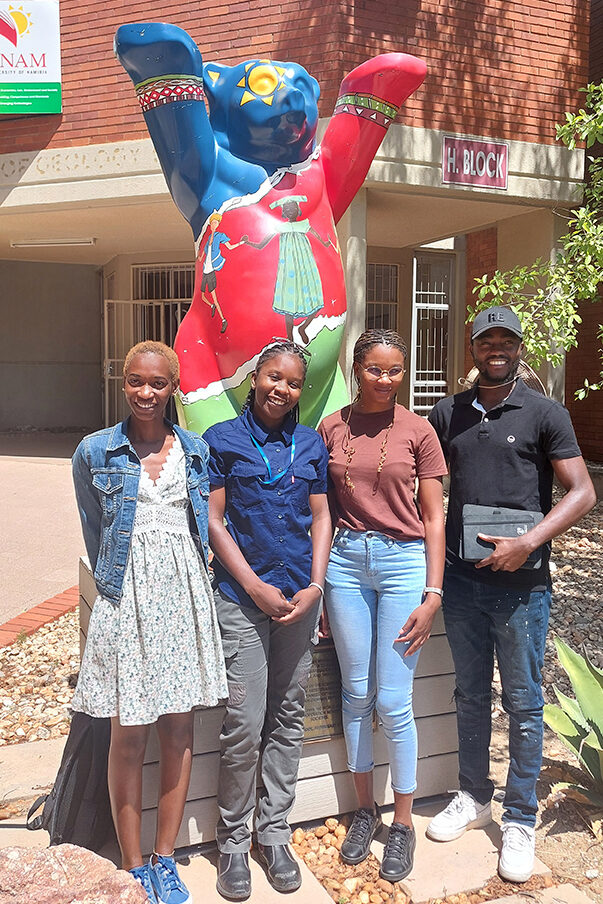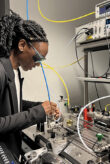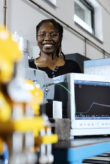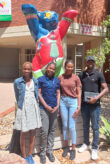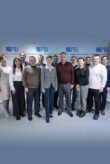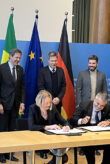Four Namibian Master’s students spent six months at the Physikalisch-Technische Bundesanstalt (PTB) in Braunschweig last year. This is what Ndapanda Musole had to say.
We were curious to hear about Ndapanda Musole’s first impressions of Germany and how she adjusted to living in a new country. She first noticed the infrastructure and the buildings, but especially that it was quite cold. Ndapanda says that Namibia is “a lovely country, but it’s so hot”. Getting used to German temperatures was challenging, especially in the beginning, but she managed just fine. On arrival day, the International Office of PTB organized a shuttle to bring her from the airport to PTB and welcomed her with small gifts at the institute. The team prepared everything so well – including finding accommodation, providing a tour of the city, showing her where the shops were – that the transition was very smooth for her. During her time here, Ndapanda noticed that Germany and Namibia are very similar due to European influences. And she felt very at home when she found Windhoek Lager at a local beer festival! Being abroad together turned her group of researchers into a tight-knit little family, where everyone was there for each other and helped out when things got tough.
Ndapanda Musole was born and raised in a village in the northern part of Namibia. Going to school involved getting up early to walk with her older siblings to her school that was about three kilometres away. After completing school, she enrolled in undergraduate studies in electrical engineering at the Namibian University of Science and Technology (NUST). At the time of this interview, she was currently working on her Master’s degree in renewable energy at the University of Namibia (UNAM).
According to Ndapanda, it is rather difficult to find employment after completing undergraduate studies. Ndapanda’s sister, with whom she is very close, encouraged her to apply for funding from the DAAD. Her sister was also a graduate looking for a job at this time, and she helped guide her through the application process. Since the sisters talked almost every day while she was here, Ndapanda’s sister continued to provide support throughout her stay.
Research project
The research project to be carried out at PTB initially focussed on the ignition of ammonia-hydrogen air mixtures. Unfortunately, there were some issues with the gas and the topic needed to be changed to working with synthetic air. Luckily, it was no problem to make this adjustment – both her supervisor at the University of Namibia and PTB staff members were very supportive. Her project then was to characterize electrical discharge in synthetic air, which is important for the energy transition. Hydrogen or ammonia stored in a tank has the potential for discharge, which could cause ignition and explosions. In this first part of the experiment, the minimum ignition energy for these gases, ammonia, and hydrogen-air mixtures were determined. When questions arose at the lab, she and her supervisor were able to reach out to her welcoming colleagues who were always eager to lend a hand.
The research stay ended in mid-October 2024. After completing her Master’s thesis, Ndapanda hopes to begin work on a doctorate. Coming back to Germany to research would be a top choice because she found the work environment to be so pleasant and the labs to be well equipped. And, after spending time researching here, it would be easy to settle in again rather than having to adjust to a new country.
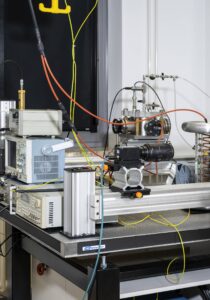
A look inside a physics laboratory with experimental equipment
As a final note, Ndapanda emphasized how grateful she is for the extraordinary support she received from the International Office and the scientific staff as well as for the funding she received from the DAAD.
We hope our paths will cross again soon and wish Ndapanda all the best for the future!
Interview conducted by Sabine Thomas, article by Lissa Moshagen
Copyright © all pictures: PTB/Stephanie Rubrecht


